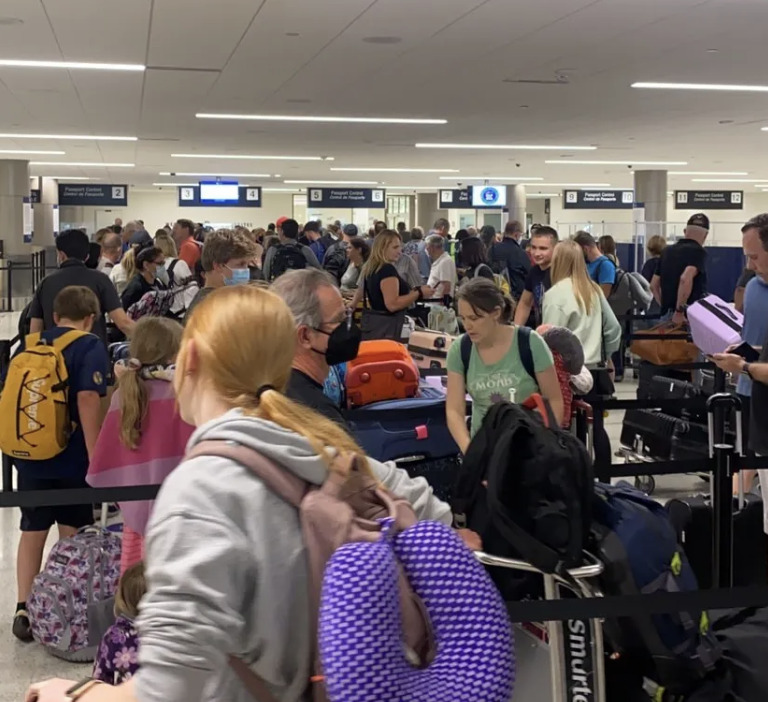
BYU students and faculty studying abroad in Europe are experiencing long wait lines, canceled flights, delays and travel detours caused by labor shortages, strikes and a resurgence in travel after two years of the COVID-19 pandemic.
For the past two years, many BYU study abroad programs were canceled or delayed because of COVID-19 travel restrictions. As travel restrictions have been lifted in the United States and throughout the world, BYU study abroad programs have begun to resume.
BYU French and Italian department chair Daryl Lee recently led a study abroad program in Paris for French majors and minors looking to complete the French Language Certificate program. Lee said he and his students experienced brief strikes in May which affected urban transport systems.
“Students lived with host families across the Paris region and came to class every day in the city center,” Lee said. “They were affected on those few days according to their transport lines.”
Lee also said labor shortages affected airport personnel when students were supposed to depart from the study abroad.
“For our students, these labor shortages affected airport personnel on their departure date,” Lee said. “They had 3 hour check-ins and security lines, but they didn’t affect the flights themselves.”
As for strikes, Lee said they are common in France and didn’t see anything surprising or out of the ordinary. “While frustrating for clients, they are a legally and culturally accepted form of expression for employees to prod management to improve working conditions,” Lee said.
Lee said Paris is among the most visited cities in the world, making the Charles de Gaulle Airport and the regional transport system among the world’s busiest.
“The return and exceptional increase of tourists as we emerge from the pandemic are testing the city every day,” Lee said. “Yet, I don’t see massive lapses in the infrastructure or labor failures.”
Now that the study abroad trip is over, Lee said he is more concerned about “the other side of the Atlantic,” where thousands of flights have been cancelled thus far this spring and early summer.

BYU student Elise Snyder returned from BYU’s Europe Business study abroad program in France, Switzerland and Spain and said there were several travel complications during the trip.
“There were two girls in our group whose flights were delayed and canceled last minute,” Snyder said. “They couldn’t make it so they had a last-minute switch to our flight going nonstop to Paris.”
Snyder said two other students in her group arrived in Paris without their luggage and didn’t get it back for another week.
At the end of the trip, Snyder said her group was to fly from Madrid to Amsterdam early in the morning. However, she said when she and the other students arrived at the Adolfo Suárez Madrid–Barajas Airport 3 hours before their flight, it wasn’t open yet and they had to wait in a line outside.
“We didn’t speak the language very well and we didn’t know what to do,” Snyder said. “Then one lady came — just one — and it took us an hour and a half to get through the checkpoint. It was really stressful.”
Snyder said since they were by themselves on the way to Amsterdam, it stressed her out more. “We were tired and wanted to go home and we didn’t know what was going to happen,” Snyder said.
Although students like Snyder have experienced complications during travel, others have only faced minor inconveniences.
BYU International Study Program director Lynn Elliott said there have been been some public transportation strikes in London and Paris which have required that students walk a bit more.
“These are only slight inconveniences,” Elliott said of the strikes.
Elliott said they have not had to make any significant changes to travel or programs up to this point in the summer.




